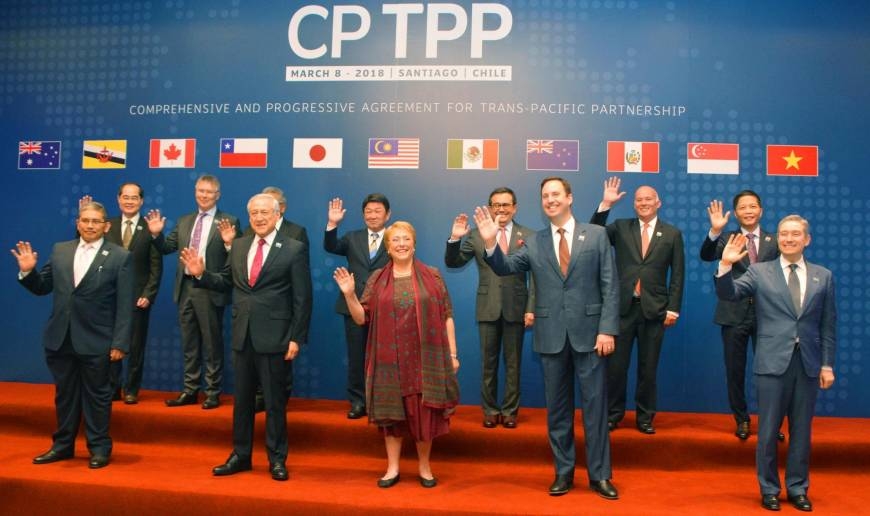Pacific trade pact signed by 11 nations without US
Santiago, March 9: As a strong signal "against protectionist pressures, in favor of a world open to trade”, the 11 countries remaining in the Trans-Pacific Partnership signed the revised trade pact on Thursday. This came into effect after the fallout of United States, in a show of unity in pushing free trade amid a rising protectionist threat by U.S. President Donald Trump.

Despite the US pullout, the deal covers a market of nearly 500 million people. In the absence of the US, it has been renamed the Comprehensive and Progressive Agreement for Trans-Pacific Partnership (CPTPP). This came into force in early 2019 to create a trade bloc covering nearly 13 percent of the world’s gross domestic product.
Focusing on the agreement, the main purpose is to slash trade tariffs between member countries. But it also seeks to reduce so-called non-tariff measures, which create obstacles to trade through regulations. There are also commitments to enforce minimum labour and environmental standards. It also includes a controversial Investor-State Dispute Settlement mechanism, which allows companies to sue governments when they believe a change in law has affected their profits.
The members countries included in the agreement are Australia, Brunei, Canada, Chile, Japan, Malaysia, Mexico, New Zealand, Peru, Singapore and Vietnam.
In short, the biggest winners are expected to be in Asia, while the wealthier countries, on balance, are not expected to receive as much of a boost. The Peterson Institute for International Economics says Malaysia, Singapore, Brunei and Vietnam will each receive a bump of more than 2% to their economy by 2030. New Zealand, Japan, Canada, Mexico, Chile and Australia will all grow by an additional 1% or less.
Chile said membership of the new pact will improve access to markets currently responsible for 17 per cent of its total exports. Mexico and Peru will also get better entry to countries on the other side of the Pacific.
The pact will come into force 60 days after it is fully ratified by six of the 11 members.